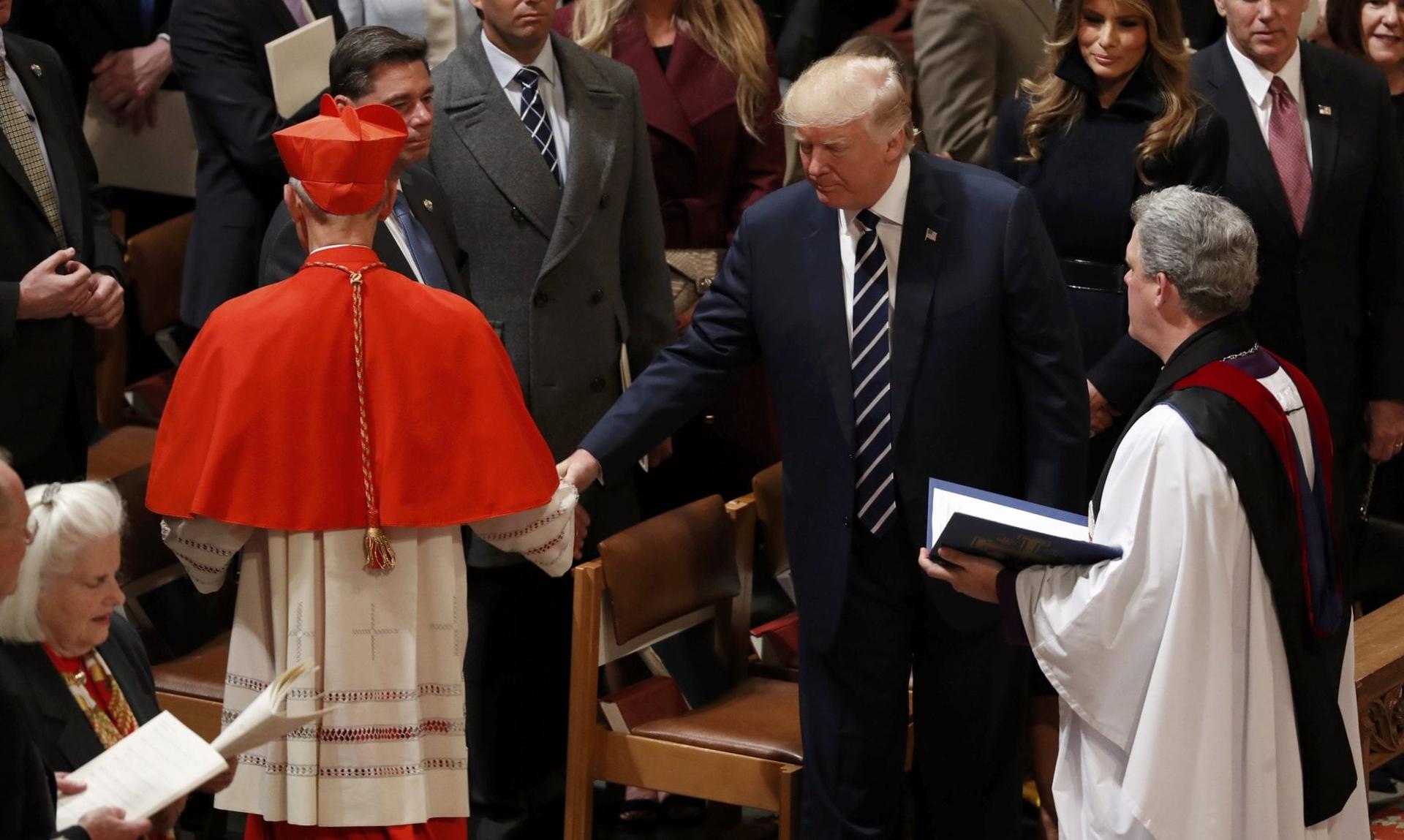NEW YORK — Two years into his presidency, President Donald Trump still enjoys high approval ratings from white evangelical Protestants, while Catholic support has declined.
A new analysis released on Monday by the Pew Research Center examining 11 surveys conducted throughout the president’s 26 months in office revealed a decline among white Catholics’ support of the president, with an overall approval at 36 percent — the same as it was two years ago.
Among white Catholics, polling from January reveals that support for Trump is down to 44 percent compared to 52 percent when he first took office. Nonwhite Catholic support for the president is significantly lower at 26 percent, however, that number is up from 13 percent in January 2017.
Comparatively, among white evangelical Protestants, that number is much higher, with seven in ten evangelicals still expressing approval for the president, and black Protestant support at 12 percent.
Among Mass-going white Catholics, the president’s approval ratings are at 52 percent, down from 60 percent when he first took office. In the most recent period analyzed, the president’s approval among white Catholics who attend Mass less regularly give the president a 45 percent approval, down slightly from 48 percent.
Meanwhile, religiously unaffiliated voters have continuously expressed low approval, clocking in at 20 percent in January 2019, down from 24 percent two years ago.
Among other religious groups, the Pew analysis found that 52 percent of Mormons approve of the president’s job performance, with that number dipping to 24 percent among Jews and 18 percent among Muslims.
During the 2016 presidential contest, the Catholic vote was nearly evenly split, with data from the Center for Applied Research in the Apostolate (CARA) at Georgetown University showing former Secretary of State Hillary Clinton receiving 48 percent of the Catholic vote, compared to 45 percent for Trump.
The official teaching document for U.S. Catholics that is often cited when it comes to elections, Forming Consciences for Faithful Citizenship: A Call to Political Responsibility, notes that while the Church does not endorse specific candidates, the guide “lifts up our dual heritage as both faithful Catholics and American citizens with rights and duties as participants in the civil order.”
“Our focus is not on party affiliation, ideology, economics, or even competence and capacity to perform duties, as important as such issues are. Rather, we focus on what protects or threatens the dignity of every human life,” the guide states.
Faithful Citizenship was first released in 2007 and adopted by a vote by the majority of U.S. bishops. The document was revised in 2015, and at last June’s bishops’ meeting, the United States Conference of Catholic Bishops (USCCB) voted to advance a proposal to produce new materials to complement their official voting guidelines to better apply the teachings of Pope Francis to current issues in the United States.
RELATED: Bishops debate Catholic voting guidelines in the ‘age of Francis’
The next U.S. presidential contest will take place in November 2020, and to date eighteen public officials have entered the race.














